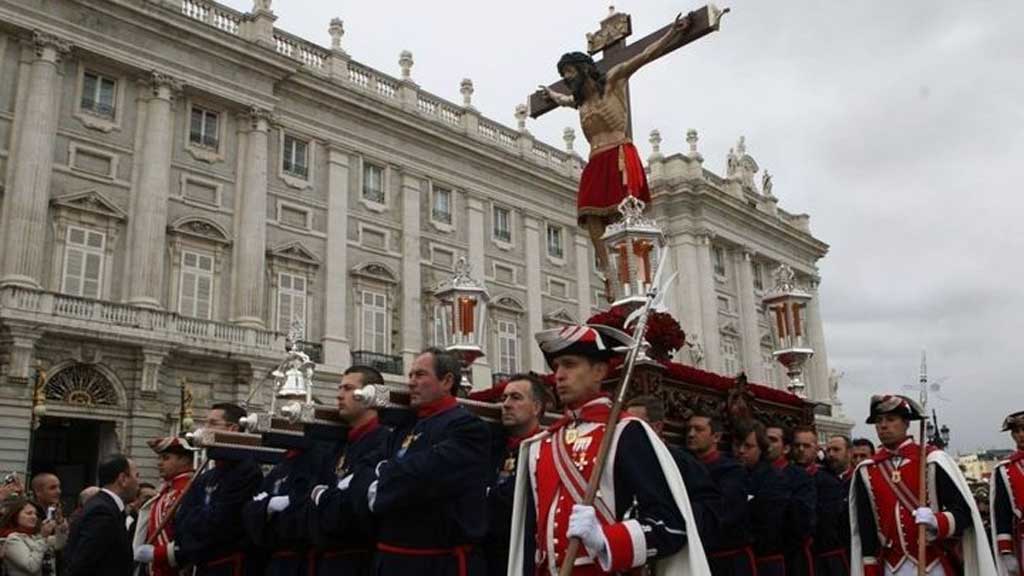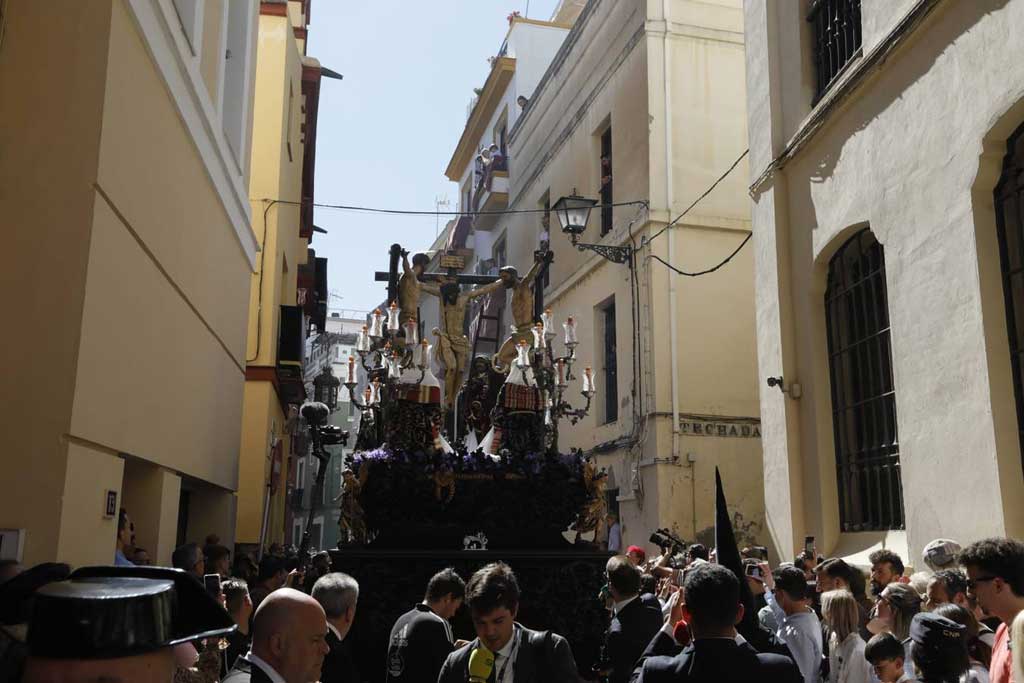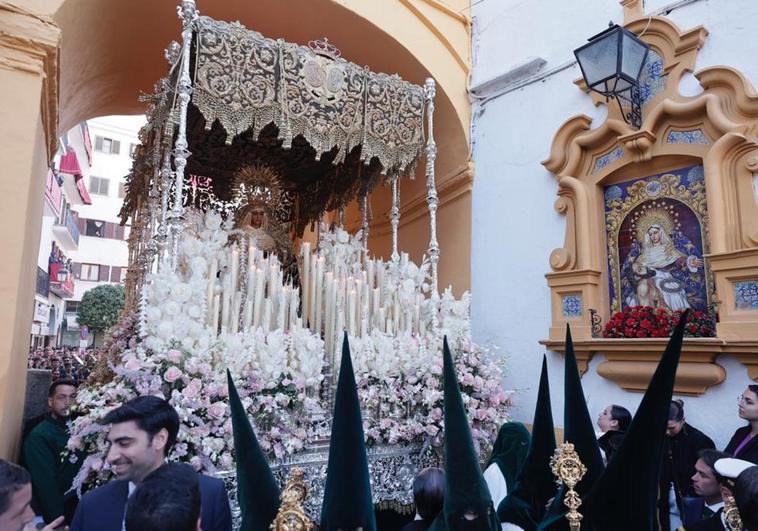Today, Madrid has a heartfelt procession in the elegant and touristic Almudena cathedral, but perhaps it is Andalusia, especially Seville, Malaga and Granada, the focal point of brotherhoods, vehemently followed by the Catholic believers.

The virgin of La Macarena of Seville, with the passage of high prestige brotherhoods such as El Silencio, El Gran Poder, La Macarena, El Calvario, Esperanza de Triana and Los Gitanos, take over the Andalusian city in the procession called La Madrugá that extends throughout the day.

Called Hermandad Santísimo Cristo de la Fundación y Nuestra Señora de los Ángeles, also known as the Brotherhood of the Negritos, it is another of the most recognized and popular in Seville, featuring slave and free blacks who went out in procession for centuries in Seville.
Since its creation at the end of the 14th century and until the 19th century, it was made up of blacks, free or slaves, banned from other brotherhoods.
La Esperanza de Triana is also another of the most important processions with one of the most revered Marian images in Seville, specifically in the Triana neighborhood.
Holy Week, in the middle of an incipient spring, arrives full of passion and colour. They are one of the most anticipated dates in the Iberian country, with strong Catholic roots that range from ceremonies in churches and streets of different cities.
However, in parallel to the Catholic ceremonies, Spaniards, tourists and residents accept these days between recollection, delivery to churches and Holy Week events, and, in a few hours, the return to joy with the resurrection of Jesus Christ, according to The Holy Scripture.
Penitents, images and religious liturgy continue for the moment to dominate the streets of all Spain, with Las Turbas, in Cuenca; The Sevillian Madrugá or the Cristo de Mena, in Malaga, among the most popular.
The climax of Easter Sunday-La carrerita de la Virgen, takes place in Villanueva de la Serena, Badajoz, where thousands of people gather at the Plaza de España to witness the reunion of the Virgin with her son.
A tradition that dates back to the 17th century and has been declared a Tourist Interest in Extremadura. It gets its name from the speed at which the image of the Virgen de la Aurora is transported to meet the image of the Risen Christ.
In general, the streets of towns and cities will see tables covered in flowers parade by and crowned by carvings of Jesus Christ or the Virgin Mary, in emblematic places in Madrid, Cuenca, Málaga, Valladolid, Zamora, Calanda (Teruel), Orihuela (Alicante) and Murcia.
ef/lam/ft









